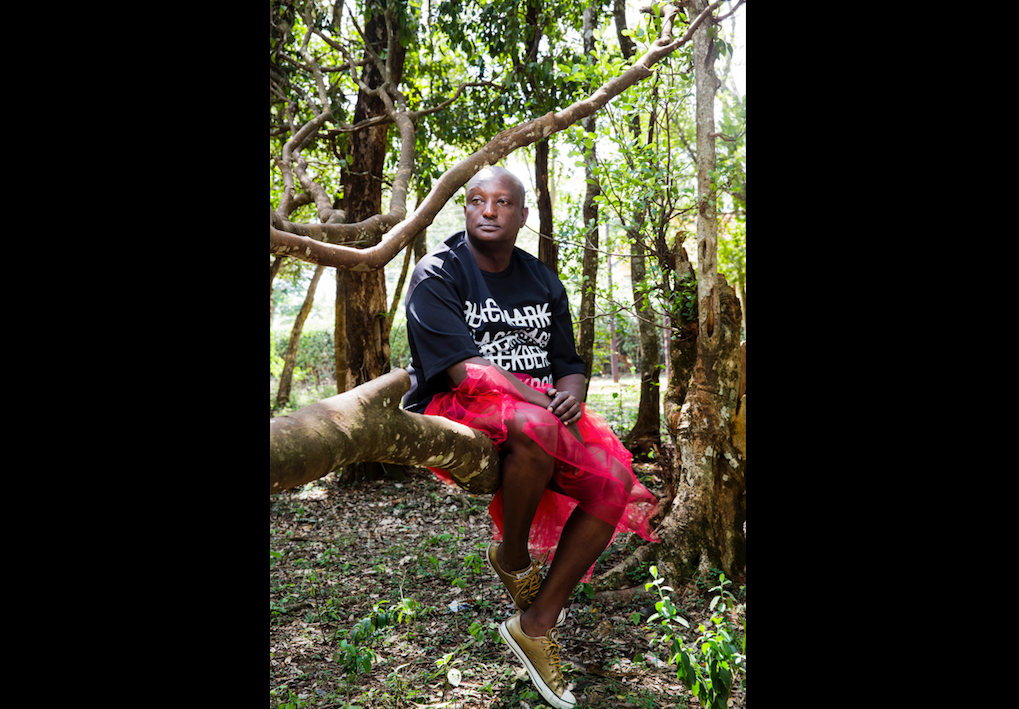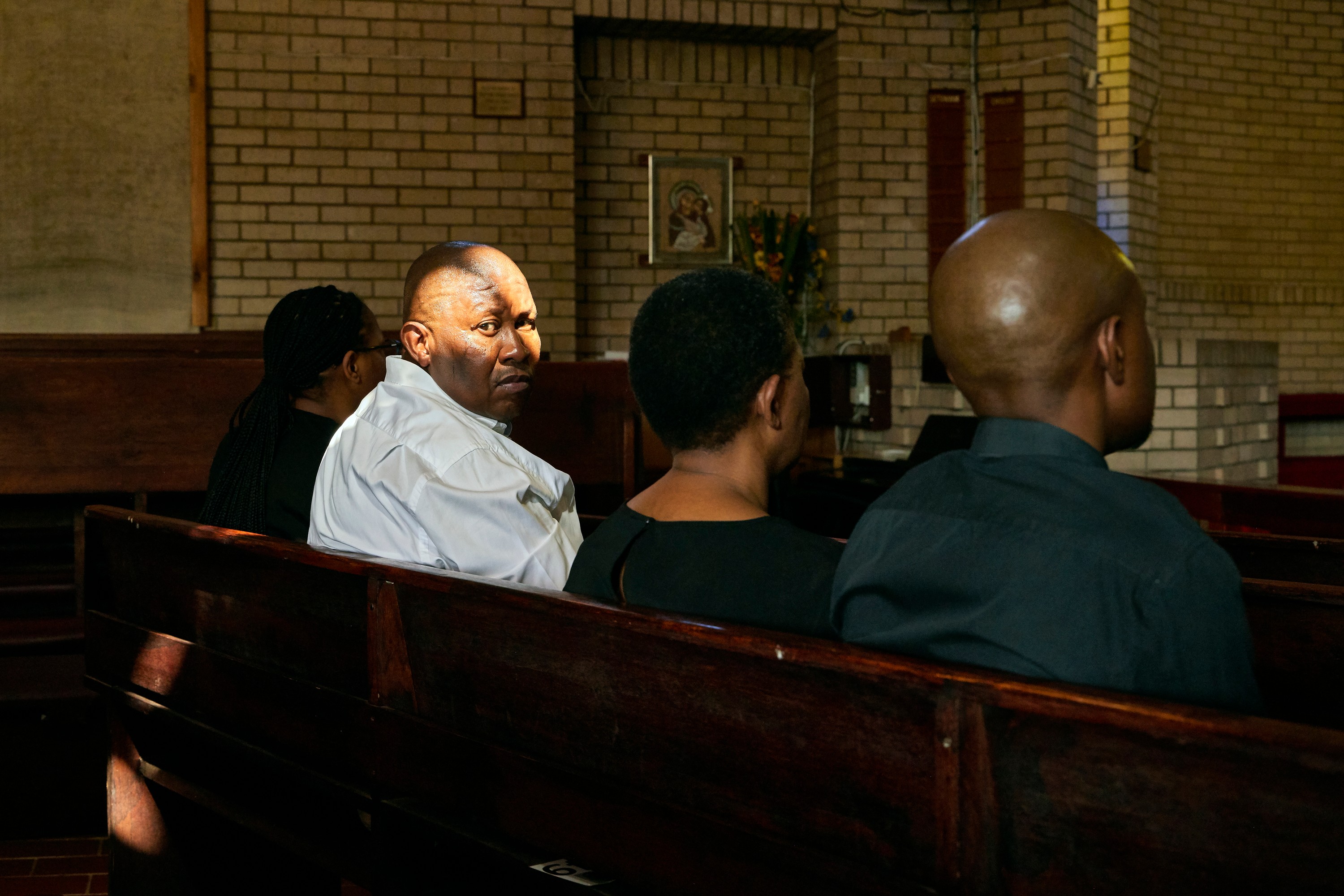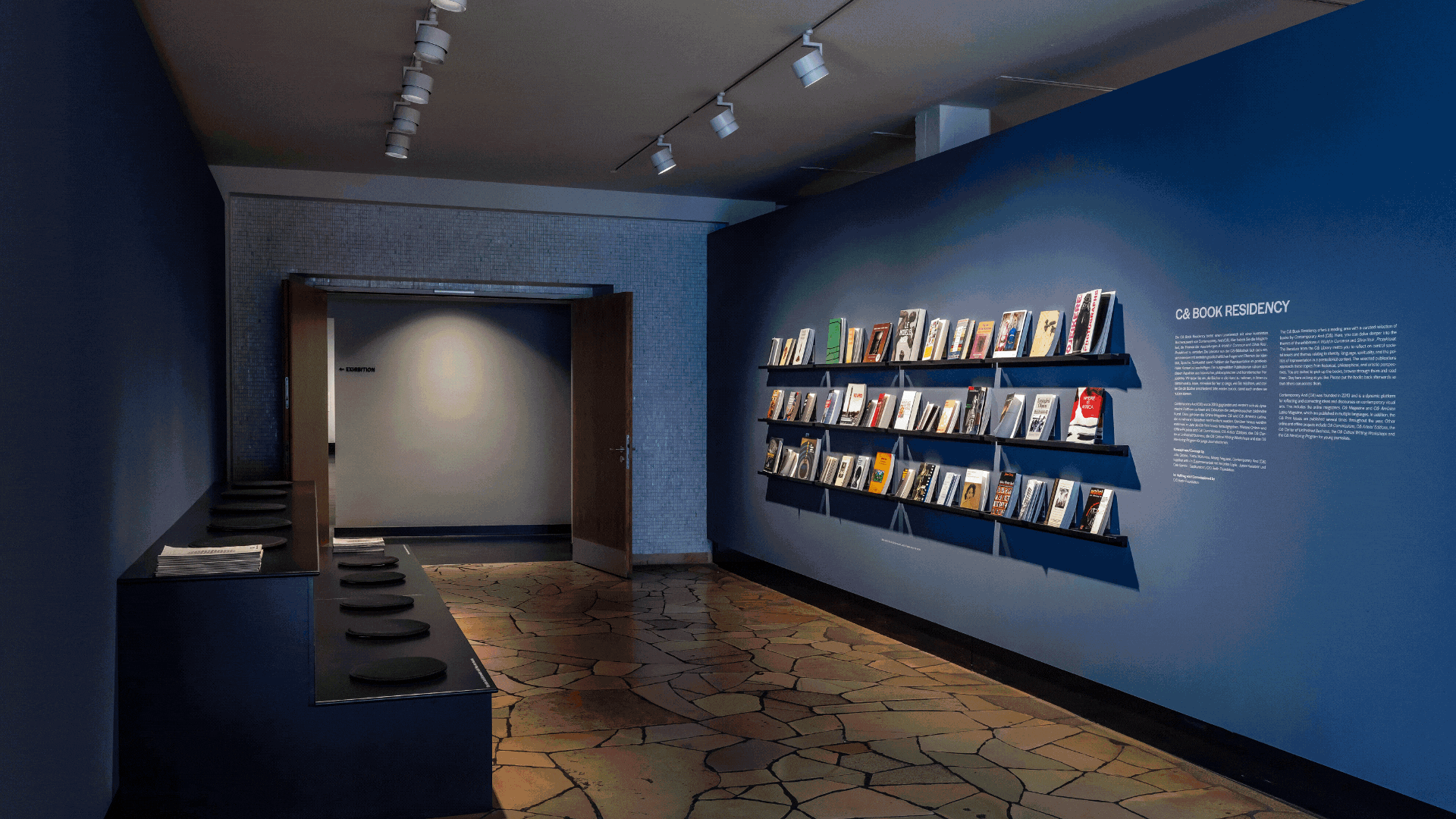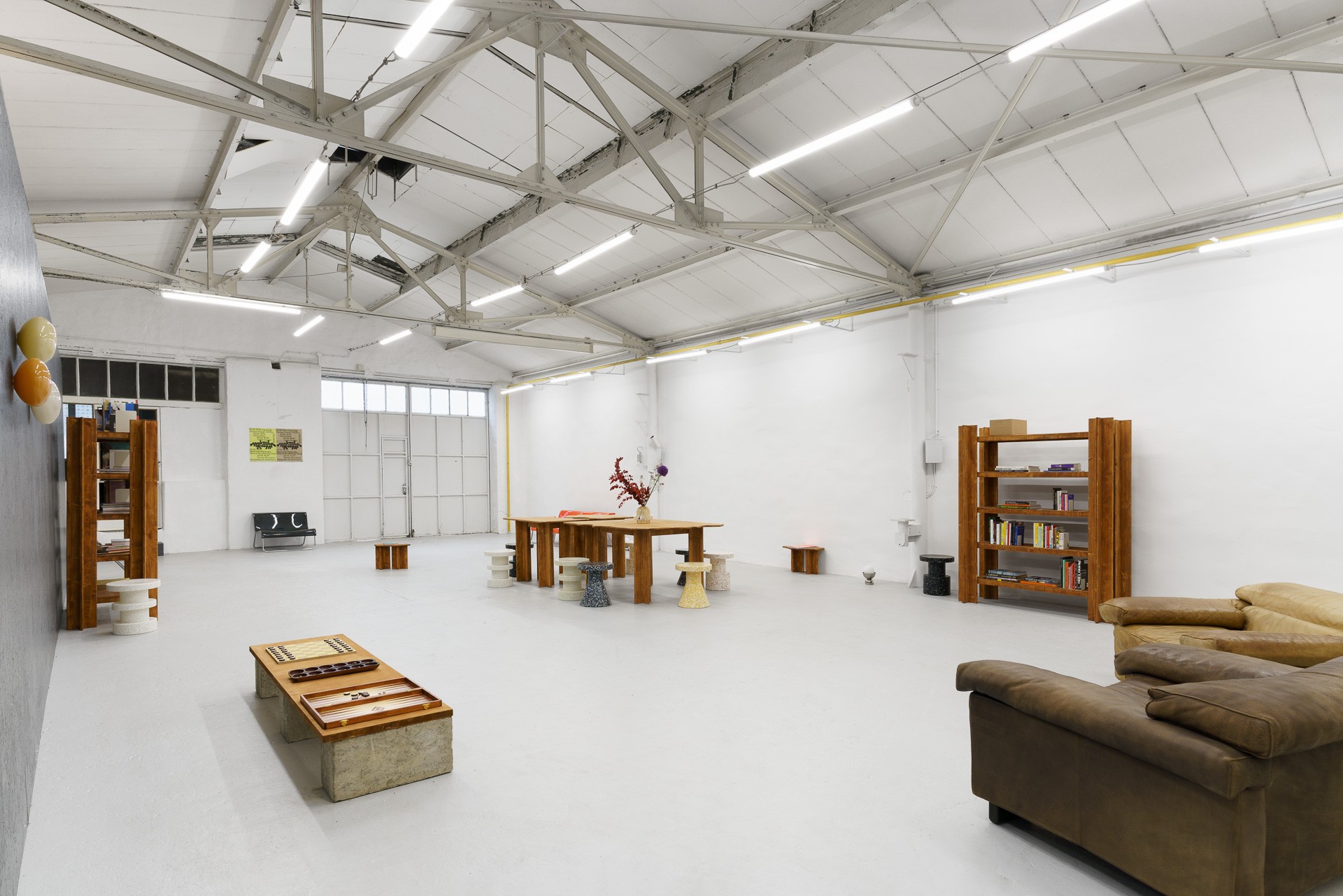Binyavanga Wainaina (1971-2019)

The Kenyan author Binyavanga Wainaina has passed away at the age of 48. His close friend Neo Sinoxolo Musangi writes a very personal note on Wainaina’s legacy of a sharp social analysis and for being unapologetically queer.
There are many ways to not write about Binyavanga Wainaina.
There are a myriad of other disparate approaches to speak about Binyavanga: the Kenyan author ofOne Day I will Write about This Place; the writer who won the 2002 Caine Prize for African Writing withDiscovering Home; the famous satirist who gave usHow to Write About Africa; the tutu-wearing TED narrator of “Conversations with Baba”; the Mail and Guardian contributor ridiculing aid work with “Oxfamming Through the Whole Black World,” the gay man who came out in I am a Homosexual, Mum; the ridiculously hilarious and chaotic intellectual in the six-part videos series onWe Must Free Our Imagination; and the African who risked it all by declaring his HIV status on Facebook; and more.
At the time of writing, Binyavanga Wainaina has been dead for at least twenty-two days. He was forty-eight years old. This is important: Binyavanga had only been in the world for only forty-eight years, five months, and three days. Then he died. With his physical person gone, it is perhaps easier to speak about Binyavanga. It is perhaps even redeeming to write about Binya. One of the things one, anyone, cannot do with Binya, however, is to reduce him into a single and easily palatable piecemeal. Like most people, Binya was – and continues to be – a highly complex person. A public intellectual, son, lover, uncle, nephew, and friend. The Binya I choose to write about, out of all the possibilities, is a Binya who was my friend. A Binya whom I have had the privilege to witness as a student of literature but also as a relatively unknown person who has had an enduring relationship with the man, Binyavanga Wainaina.
But. There’s nothing left where Binya was, but poetry. And tears. But mostly tears.
Scene I (after witchboy)
November 17, 2015
we sit in bars waiting for time. speaking in a foreign language they call normative because it is no longer safe to be here.
(a lover waits for death, across the other side)
Also:
there’s nothing left once the imaginary apocalypse is no longer a reflection of time and Taty has since stopped with that stupid song.
(will you tell her i taught you to numb your body to pain?)
this morning a teary nun with hairy legs opened my door with her nose to explain to him what lovers do when they can no longer grieve their exes.
(he says i should remind her to fetch her nails from under my bed but i want him to first stop these bloody toes from hanging from my ceiling.)
Scene II (for binya)
November 24, 2015
in outerspace this morning sat a bird on my headboard
twittering in a language they call love.
(binya, if love were an act, what would it look like?)
suppose love were a verb that does, and outerspace a place
would you get into this steel pipe and slide with me?
(i have a confession to make):
[…] everything leads me to you.
so, please tell me one thing:
can i love you out of this?
Scene III (why?)
May 21, 2019
binyavanga. binya. the binj.
silence.
Scene IV
May 22, 2019
frank sinatra:
[…]
Yes, there were times, I'm sure you knew
When I bit off more than I could chew
But through it all, when there was doubt
I ate it up and spit it out
I faced it all and I stood tall
And did it my way
[…]
Forwhat is a man, what has he got
If not himself, then he has naught
To say the things he truly feels
And not the words of one who kneels
The record shows I took the blows
And did it my way
Yes, it was my way
Scene IV (A tribute)
Nairobi, 30 May 2019
It is difficult to think of a time when I did not know Binyavanga Wainaina.
Being the person that he is, Binya refuses to afford me a memory of a before-time or a never-again-time. And that’s alright.
I have always been an unlikely Binya-friend. Binya was not my friend because, and only because, we were queer and, in many ways, had too much gender between us. Binya was not my friend in the way that he mostly had friends who were already household names in literary and art worlds. I had not schooled in Mang’u, or Loresho, or Lenana, or any of the big schools that most of his other friends had been to. I had, instead, gone to Third World schools in equally Third World parts of Kenya. Binya’s friends had grown up in Nairobi and came from recognizable family names on Kenya’s cartographies of wealth distribution. I, on the other hand, had grown up in boarding schools everywhere else but Nairobi, and did not even carry a family surname.
In those days, Binya was loud and perhaps even annoying in the way he would take over a conversation with his exaggerated gestures. In those days, Binya was also lovable in his brilliance, in his analysis, and in his contradictions. In later years, Binya would be disturbingly withdrawn and quiet. He would call me with tears and fears of death, of depression, of newfound paths to vulnerability.
Binya had changed.
The past three years have been difficult for our friendship. Binya was afraid of being alone, in these three years. He cried a lot. He panicked a lot. But he also cooked a lot – and boy did he cook! His food took so long by the time it was ready, we would all be drunk on Tuskers and argument… These past three years, Binya also gave a lot. He wrote anthems and conceptualized revolutions almost every day. He wrote numerous drafts of the most intergalactic ideas I had ever experienced of his former self.
I went dancing with the earlier Binya who, by the way, couldn’t dance. He seemed to have two left feet in that white-people way! I dyed the former Binya’s hair in extravagant colors, some of which he just hated and stripped off. In one of our many reckless unthoughtlessnesses we took a cab from Nairobi to Lamu just before the new Binya arrived in 2015.
We did silly things with Binya.
We danced. In River Road, in Melville, in Gatwikira, in Reke Marie, at Dagos, and we did send white chicken to the Indian Ocean.
I loved Binya in ways I did not think were possible for me to ever love a man. Binya was the kind of friend for whom I would take a bullet, and I did take enough bullets for him. Direct and piercing bullets that pushed and redefined my politics and the way I chose to do friendships.
Binyavanga Wainaina taught me to love viciously, recklessly, and at a fast pace. Binya taught me that to love someone was also to commit to care-work and to embrace a life of being conflicted.
Binya, may the ancestors hug you real tight. May they cleanse the parts that still hurt. May you, darling, be a worthy ancestor and may you forgive us.
I love you forever and I will miss you, a lot. A world without you in it feels a little empty. I love you, always. Forever and always.
Scene V Studio 44
a post-binya time and place
this is not how we die.
on a diet of unknowns: Ketepa and the smell of acrylics/ we dance to lyrics/ we have never known – childhoods activated like we once spoke Lingala (but we perhaps did, or not) – [fated to the uncertainty of living – as though we were dead]
and we have learnt to bury each other with dry eyes; we have cried all the tears/ for people we didn’t know (but mostly for ourselves)
[…]
this is how we die.
Neo Sinoxolo Musangi is an experimental artist, writer and certified art groupie who lives in Kajiado, Kenya. @sinoxolomusangi
Feature

We're Still Here: Thero Makepe’s Visual Jazz

C& Highlights of 2025

Maktaba Room: Annotations on Art, Design, and Diasporic Knowledge
Feature

We're Still Here: Thero Makepe’s Visual Jazz

C& Highlights of 2025
